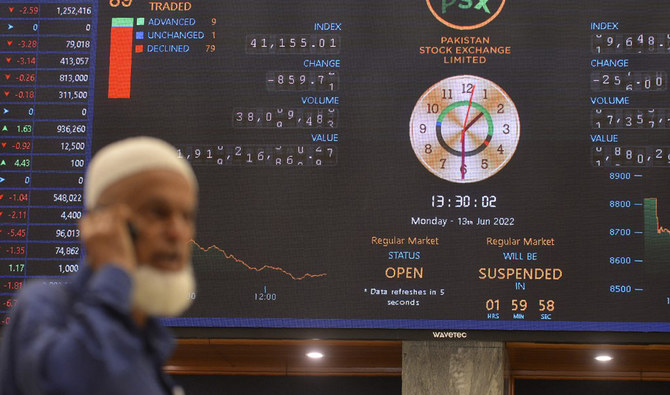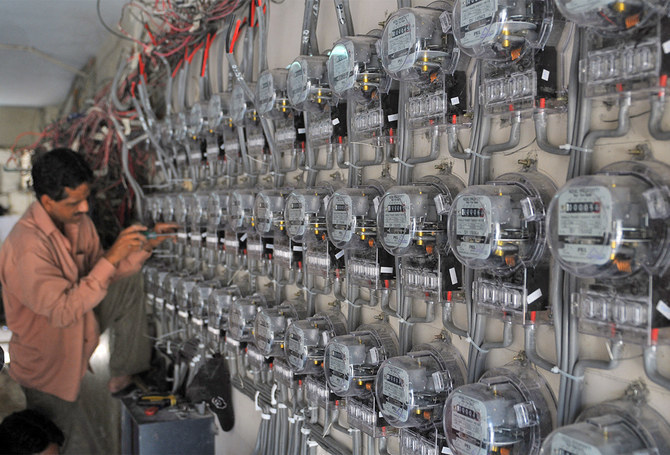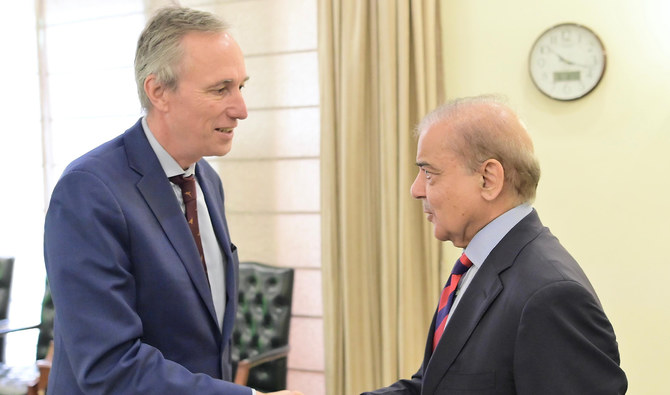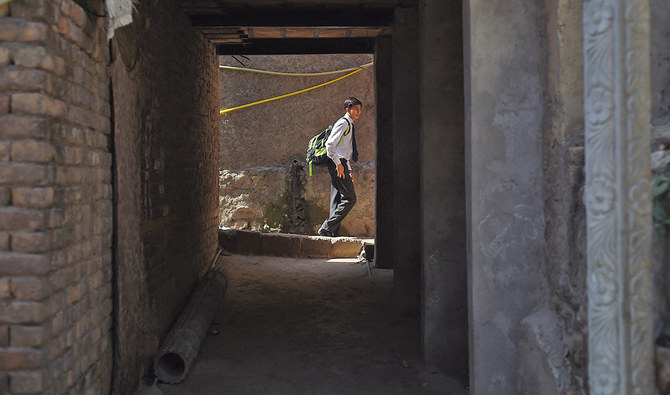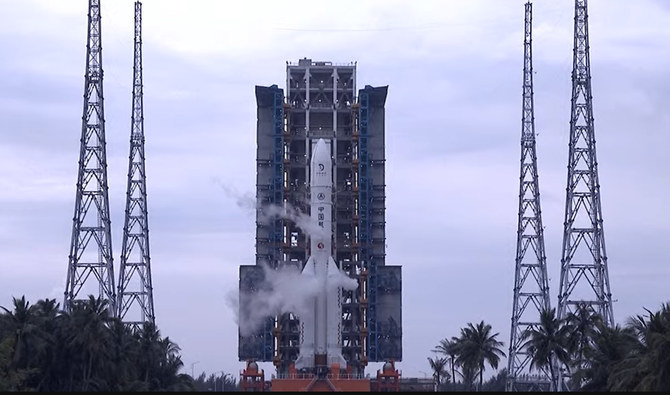KARACHI: Pakistan’s currency and stocks continued to slide on Monday ahead of a critical meeting of the International Monetary Fund (IMF) executive board to decide the fate of the South Asian country’s $6 billion loan program, analysts and traders said, attributing the bearish market sentiment to massive floods nationwide.
The Pakistani currency depreciated by 0.57 percent as the US dollar closed at Rs221.92 in the interbank market, while the greenback was trading at Rs230.50 for selling in the open market on Monday.
Analysts believe the anticipated impacts of recent floods on the import bill of the country have also played a key role in building pressure on the rupee.
“The pressure on the rupee was also due to the expected imports of food commodities after the recent floods damaged crops in the country,” Samiullah Tariq, a research director at the Pakistan Kuwait Investment company, told Arab News.
The South Asian country has incurred huge human, infrastructural and agricultural losses after the unusually high monsoon rains. While the impact of the calamity is expected to last 30-45 days, the rehabilitation process would take much longer.
“The estimated impact of losses to the economy is around Rs1.2 trillion ($5.3 billion), which is around 1.48 percent of Pakistan’s GDP,” the Karachi-based Arif Habib Limited brokerage firm said in its report on Monday.
“The GDP growth will shrink to 2.49 percent in FY23 against earlier base case assumption of 2.97 percent. Rebound expected next year with GDP to settle at 4.4 percent. Current account deficit to grow by $1.98 billion due to import of food commodities and shrunk exports of textile, rice and sugar given shortage in the country. Inflation to witness further pressure this quarter, settle at 19.7 percent in FY23.”
Pakistan’s finance minister Miftah Ismail has hinted that the country may turn to its eastern neighbor, India, to fulfil its food requirements.
“The government can consider importing vegetables and other edible items from India for the facilitation of people in the wake of destruction of standing crops in Pakistan due to recent floods,” the state-owned Radio Pakistan quoted Ismail as saying at a press conference in Islamabad.
Analysts expect the pressure on Pakistani rupee to ease off after the IMF deal is endorsed by the Fund’s executive board.
“The currency is expected to recoup some of the losses after today’s IMF board meeting which is most likely to approve the seventh and eighth reviews of the loan program,” Tariq said.
The IMF executive board is scheduled to meet today, on Monday, to review the recent staff-level agreement with Pakistan and decide if it wants to disburse $1.17 billion to support the cash-strapped economy of the South Asian country.
An IMF team reached the staff-level agreement with Pakistan on July 13 after carrying out the combined seventh and eight reviews of the country’s $6 billion extended fund facility (EFF). Apart from $1.17 billion from the Fund, Pakistan also seeks further extension of the program until June next year, along with an addition of $1 billion to its overall amount.
Pakistan signed the $6 billion bailout package in 2019, which has been subject to repeated delays due to various reasons. The most recent delay was caused when then prime minister Imran Khan’s government deviated from the program’s objectives and froze energy prices earlier this year. Khan was ousted from power through a parliamentary no-trust vote in April.
The new agreement comes with unpopular belt-tightening measures by the government of PM Shehbaz Sharif, which has effectively eliminated fuel subsidies and introduced new measures to broaden the tax base since taking over the country in April.
At the stock market, the benchmark KSE-100 index regained strength, but closed in the red zone at 42,504 points after shedding 87.17 points on Monday.
“Stocks witnessed bearish activity ahead of the crucial IMF board meeting for the revival of bailout package amid escalating political tensions and investor concerns for flash flood losses hitting $10 billion,” Ahsan Mehanti, chief executive officer (CEO) of the Arif Habib Corporation, told Arab News.



